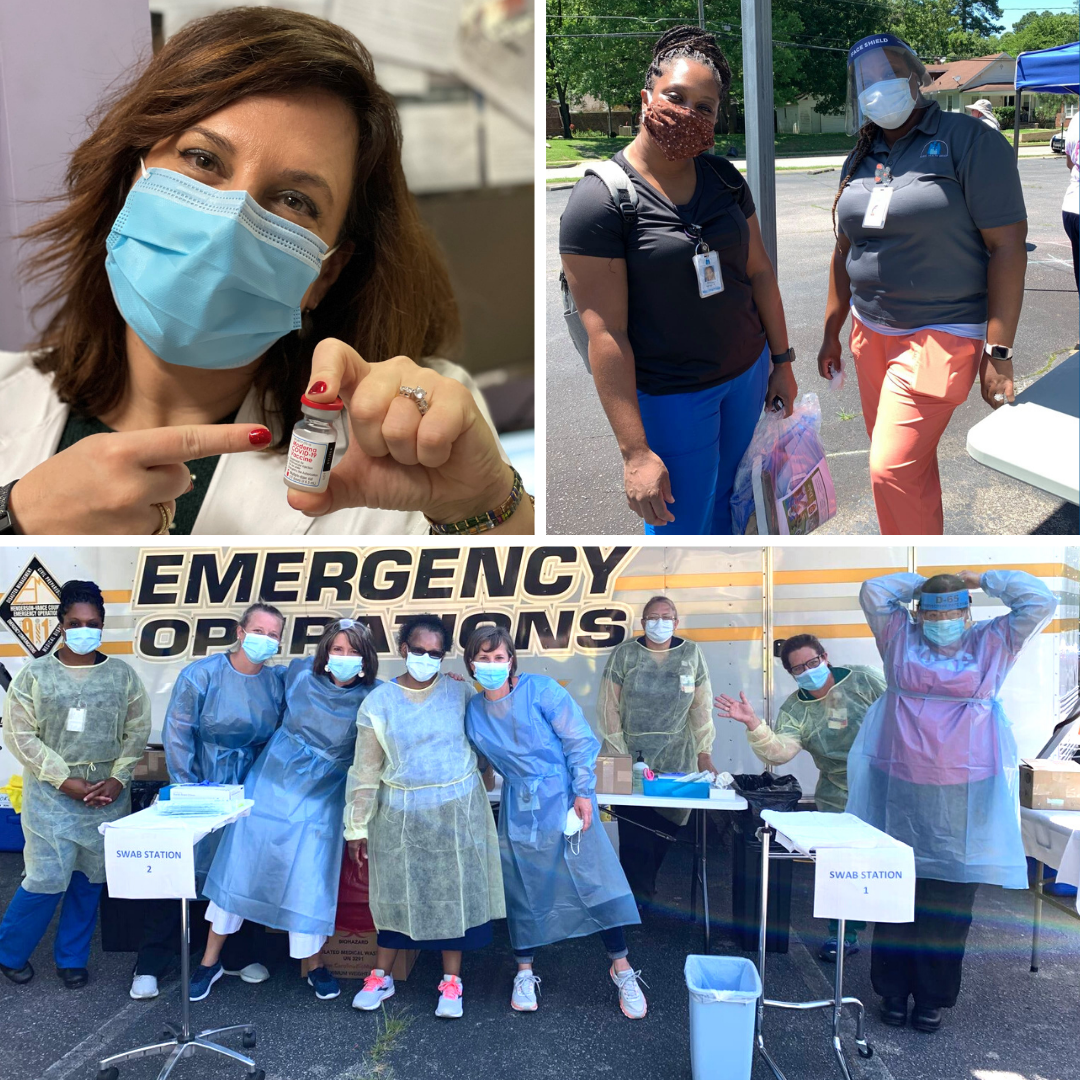D-CHIPP Community Partner Spotlight: Granville Vance Public Health

In 1974, the Granville and Vance County health departments merged to form the Granville Vance District Health Department. In 2015, the organization rebranded to its current name — Granville Vance Public Health (GVPH).
Supported by 80-plus employees, GVPH‘s overarching goal is to elevate the practice of public health. GVPH provides comprehensive public health services across two counties, along with primary care, dental health, care management for pregnant women and children, CenteringPregnancy®, diabetes prevention, and substance use treatment. Its Health Promotion and Wellness Team is now 10 people strong and almost entirely supported by the grant dollars that come into the agency to support community health priorities; additional grants management is required of local health departments that wish to excel in providing evidence-based programs and services in response to community need.
The Duke University School of Nursing is affiliated with GVPH through GVPH’s academic health department model. To help address the ever present need for more funding in rural areas and ensure best-practices in grant management, GVPH has utilized an academic health department model since 2012 in which the health department creates a formal affiliation with at least one academic institution. Goals of enacting this model include strengthening the connection between practice and academia, benefitting both the health department and the institution; establishing research-based practice that supports health promotion efforts and the health needs of the Granville and Vance communities; and building capacity at GVPH through increased grant funding and access to resources. Right now, Devon Noonan, PhD, MPH, FNP-BC, associate professor, is working with GVPH on a grant project to identify best practices for tobacco cessation in rural areas.
The academic health department model has resulted in additional grant funding coming into GVPH; new strategies in project management, evaluation, and quality improvement; capacity building among health education staff; and new approaches to grant management. Other GVPH affiliates through this model include the University of North Carolina School of Public Health, Center for Health Promotion and Disease Prevention, and North Carolina Central University.
In response to the COVID-19 pandemic, GVPH has had to stretch its agency services. The department provides COVID testing, case investigation, contact tracing and resource information (e.g., food, supplies) to those who must quarantine and isolate. The staff also monitors and provides guidance on where outbreaks can occur, such as in long-term care and correctional facilities. Their primary care and dental clinic services have expanded to include telemedicine visits, in order to reduce exposure, while still offering in-person visits. GVPH also operates a nurse triage line and provides regular COVID updates via social media, website, emails and local leaders. As a result of these efforts, approximately 3,000 individuals across the health district are tested each week, and Granville and Vance counties have both maintained a percent positive rate below North Carolina’s goal of five percent over the past few weeks.
Through the 2018 Community Health Assessment, GVPH identified youth well-being, mental health and substance use disorder, and access to health care as three health priorities; poverty and health equity were labeled as crosscutting themes important among all of its priorities. In particular, over the coming years, GVPH will focus increasingly on Adverse Childhood Experiences (ACEs) and building trauma-informed systems serving children and families; improving access and connection to services for people experiencing mental illness and substance use disorder; and developing an integrated health network that connects physical health, public health, and behavioral health partners in the region in order to strengthen the rural health care system and expand access to essential clinical health care services. Academic partners will help provide capacity, guide the use of evidence-based strategies, and evaluate the impact and outcomes of the work.
“There is never enough research with or about rural communities,” said Lisa Macon Harrison, GVPH health director. “We appreciate the partnership of our universities who are willing to support the work of rural public health practitioners.”
For more on GVPH, visit its website at gvph.org.